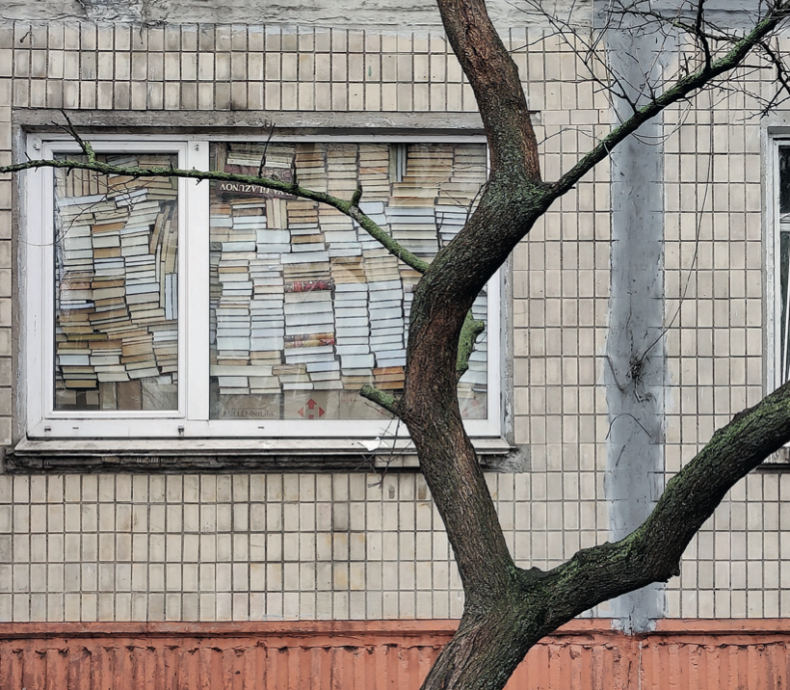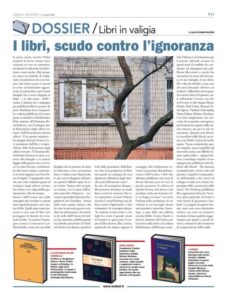A summer of readings, from Ukraine and more

In the middle of summer, as Italy found out that it had to go back to the polls again, a publishing initiative showed how books can be a symbol of solidarity too, reminding us that not far from this country, a gruelling aggression is still going on. In particular, for the many families from Ukraine who have fled to Italy – and other countries – a campaign has begun to publish books in Ukrainian to get into their hands.
Five thousand volumes have been published in our country on the initiative of Rubbettino Print together with the Ukrainian Book Institute, with the support of the Federation of European Publishers and The Italian Publishers Association-AIE. “With this initiative”, explained Ricardo Franco Levi, president of AIE and vice-president of the Federation of European Publishers, “the Ukrainian Book Institute provides concrete help to families and minors who have fled the war all over Europe, while at the same time helping to maintain a strong bond with their home country”.  The five thousand volumes were produced thanks to the support of Ukrainian publishers, who made the print files available free of charge.
The five thousand volumes were produced thanks to the support of Ukrainian publishers, who made the print files available free of charge.
Meanwhile, from Ukraine, one of the most circulated images in these months concerns exactly a pile of books. Those used as a barricade in a house in Kiev to protect the windows from possible bombs. The one who took the iconic image was the researcher Lev Shevchenko, a neighbour of the family who thought to use literature as physical protection.
The volumes are mostly arranged with the binding on the inside, so it’s difficult to tell what they are about. “Only one large volume stands out, featuring the works of the Russian artist Ilya Glazunov. – reports journalist Katerina Segatskova in the Guardian – Ironically this painter, who saw World War II as a teenager and who witnessed the collapse of the Soviet Union, publicly supported Vladimir Putin’s authoritarian policies and he painted pictures praising Russia’s ‘greatness’. The people of Kiev are now using a catalogue of his paintings to defend themselves from airstrikes by the Russian army”.
In case of emergency therefore, books can become a physical shield against violence. But, as it is reminded by the Ukrainian publisher Leonid Finberg, it is above all a protection against ignorance and a tool for awareness. “I, together with my friends and colleagues had the great honour of largely creating a body of textbooks, films, exhibitions, shows that marked the transition from Soviet totalitarianism to Ukraine’s liberal-democratic present. The books we published over several decades are the voices of great thinkers belonging to different cultures and eras. Such voices were thus heard and read for the first time in the Ukrainian language” reports Finberg in the preface to a volume in which he collects some of his thoughts and interviews.
Sociologist, head of the Ukrainian publishing house Dukh i Litera (Spirit and Letter), director of the Centre for Studies of the Culture and History of East European Jews, Finberg is an institution for the Ukrainian cultural world. During these months of conflicts, he continued being committed to publishing old and new books to tell the story of his country, its struggles, its wounds.
He reiterated several times that one of his main goals is to translate and disseminate some great Jewish writers of the past who were born in current Ukraine but wrote in other languages – Bruno Schulz, Paul Celan, Shmuel Yosef, Agnon, Vladimir Zabotinskij, Natan Zabara, Sholem Aleichem. A very long list that talks about a diverse past, deeply marked by Jewish culture, but mostly forgotten. When not entirely erased by the Shoah, a topic Dukh i Litera gives much space to.
“Without understanding such tragedies, without burying the innocents who were killed, it was difficult to start from anything else. – explains the editor and sociologist regarding his effort to publish texts dedicated to Shoah – But there isn’t such a community that can live only in the past, so to understand current events and vectors of development isn’t less important than knowledge of history”. After all, publishing books represents to Feinberg “our spiritual weapon in the face of various forms of ignorance and barbarism”. The pages of the Libri in valigia (Books in a suitcase) dossier in Pagine ebraiche in distribution certainly are not as solemn, but they are nonetheless a modest attempt to make some suggestions for opening up to different worlds and arming oneself with other tools for understanding reality.
From top, in a house in Kiev a pile of books protects the window from possible bombs; the frontpage of the dossier published by Pagine Ebraiche: the headline reads Books, a shield against ignorance.
Translation by Martina Bandini, revised by Maria Cianciuolo, students at the Secondary School of Modern Languages for Interpreters and Translators of the University of Trieste, interns at the newspaper office of the Union of the Italian Jewish Communities – Pagine Ebraiche.
